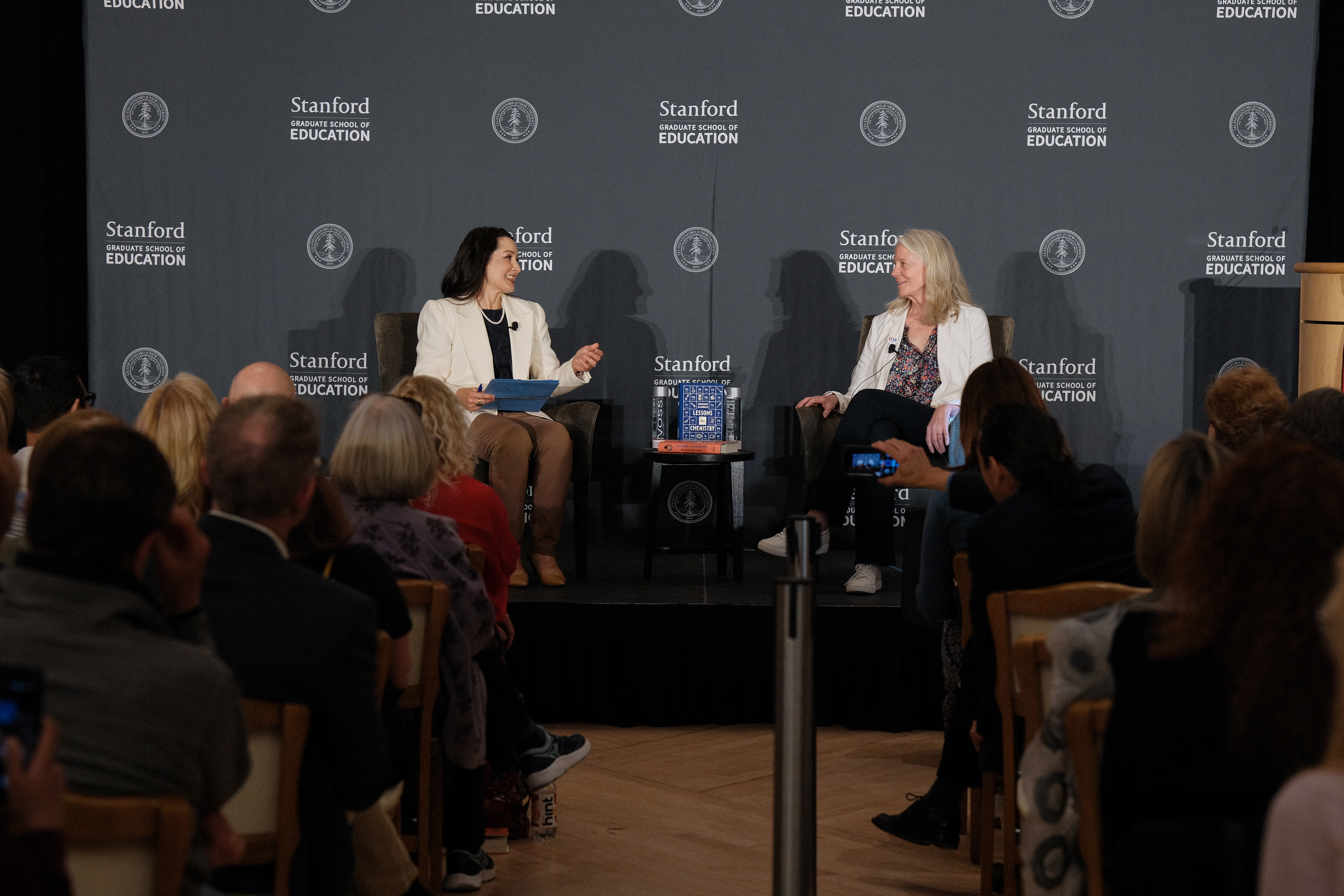Covalent bonds
Garmus went on to share that passion and conflict aren’t only good for introducing characters in a story, it’s what galvanizes people around a shared goal.
Integral to any sort of societal change, whether small or systemic, is cooperation from people on all sides and of all different backgrounds, Garmus suggested. Cooperation is something she believes women can bring into any room, and something that’s needed in order for societal norms around STEM (Science, Technology, Engineering, and Medicine) to move forward.
“It's important that we listen to everybody's voice, because we have a myriad of problems to solve and we need the best minds on all these problems,” Garmus said.
In the book Zott, like Garmus, rows for exercise. The sport, she says, highlights what can be done by a group of very different people moving toward a collective goal.
“Rowers know you may not like a single person in your boat, you might hate everybody's guts in your boat, but the minute you get in and you're in a race, you work together,” she said. “If you're a rower, you want to win, and winning requires cooperation.”
Testing a new hypothesis
Guests in the audience, which included Stanford students, local residents, parents, and educators, were invited to ask their own questions during a public Q&A. An eighth grader from Marin asked about the inspiration for a character’s name. A postdoc from Stanford wanted to know Garmus’ ideas for increasing the pipeline of women and girls going into STEM.
In response to a question about how educators and parents can support students in becoming anything they want to be, she said simply getting out of the way will do a lot to remove limits on what they can accomplish.
“I know that there is a huge amount of pressure to make sure your kid gets a job,” said Garmus, who has two daughters. “And I know the job market right now is not fun for kids, but I'm kind of living proof that if you just keep at your passion, it will bear fruit.”
Garmus also shared the story of a young woman in Harlem, who wrote to her after reading Lessons in Chemistry.
“Her mother was a crack addict, she didn't have a father, and she never graduated from high school,” Garmus said. “She wrote to me saying that she always wanted to be a lawyer, and asked what Elizabeth Zott would tell her to do.
“I said, I want you to go down to community college and I want you to enroll,” Garmus said. “Long story short, this young woman went to the community college and she so impressed the faculty that within a year they got her a full ride at a four-year college, studying pre-law.
“This book has given me this huge gift of hearing from people all over the world, every single day, but her story is special because it shows that in the end, the only one who's not letting you achieve your dreams is you.”

